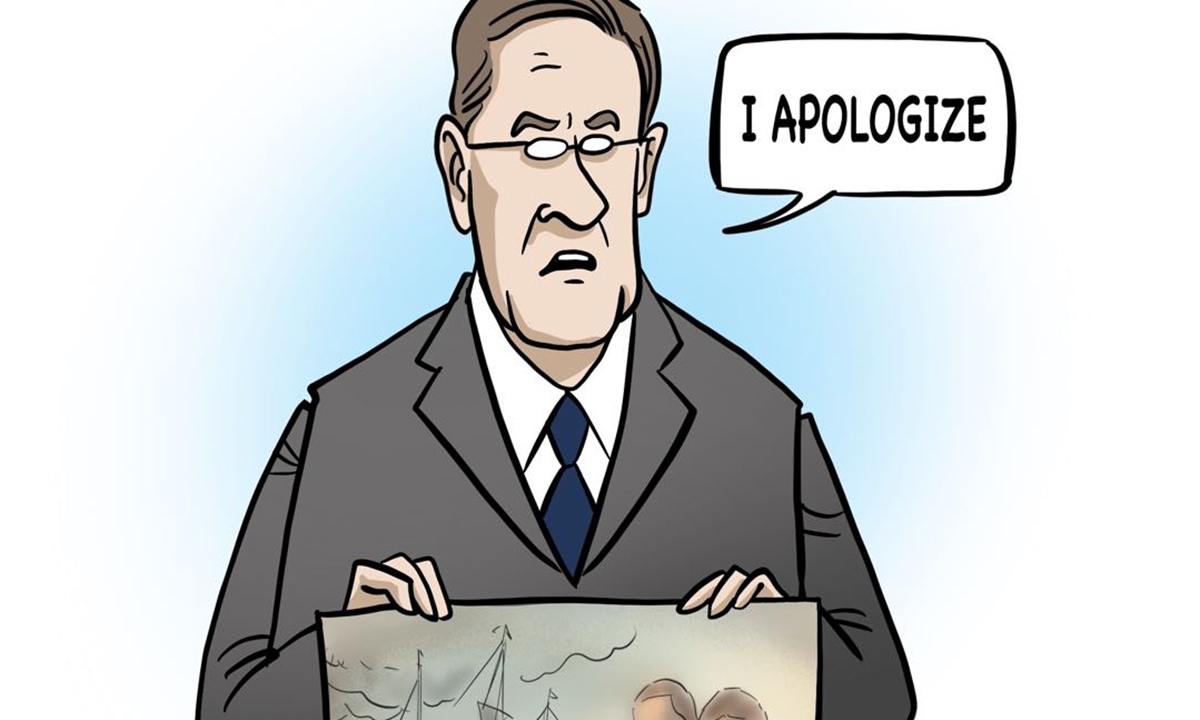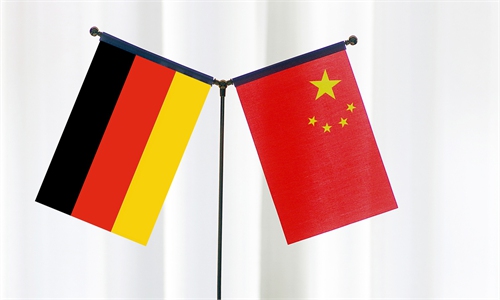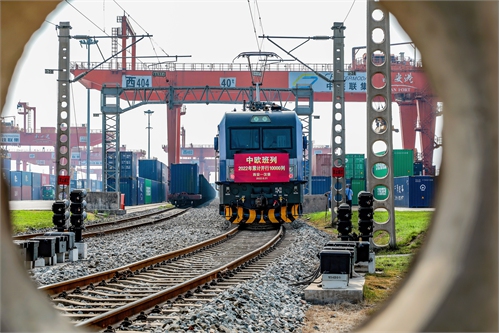Dutch apology over slave trade a belated recognition of its past dark history

Illustration: Liu Rui/GT
In a speech in The Hague on Monday, Dutch Prime Minister Mark Rutte formally "apologized" for his country's historical role in the slave trade, which he called a crime against humanity that began more than 300 years ago.For 250 years, from the 16th to the 19th centuries, the Netherlands made a fortune shipping some 600,000 Africans as slaves to South America and the Caribbean, shaping the "Golden Age" of the European empire.
On July 1, 1863, slavery was abolished in Suriname and other Dutch-controlled territories, but a 10-year "transition period" followed before it officially ended.
The rise of the Netherlands was part of the global expansion of European powers. It was the brutal and bloody plunder of these countries, along with their foreign aggression, which ultimately underpinned the carving up of the world by Western capitalism and left an indelible scar on world history.
In 2021, the National Museum of the Netherlands held an exhibition on the theme of "Slaves." Visitors to the exhibition could see the logbook of the slave trading ship the "Conick Salomon."
According to the logbook of the slave trading ship, the voyage of the ship was from today's Ghana to Suriname. It is recorded that there were 333 men, 167 women, 5 girls, and 3 boys on board at the time of the voyage, and 54 did not survive the journey.
The ship's owner, the Dutch East India Company, became the richest company in the world by the mid-17th century. With more than 150 merchant ships, 40 warships, more than 50,000 global employees, and a private army of more than 10,000 soldiers, during its 21-year monopoly, the company's value soared to as much as 78 million guilders. According to economists' estimates, that's the equivalent of $7.9 trillion in 2017, roughly the combined GDP of Japan and Germany for that year.
Although the Dutch apology came late, some 150 years after the abolition of slavery, it finally has an official recognition of this dark history. At the very least, it will help future generations to understand their country's not-so-glamorous past.
In Dutch primary and secondary school history textbooks, the history of the slave trade was not included until 2006.
Reviewing this dark history is not to deny the progress of European countries. Western civilization has its brutal side, but after all, it is evolving forward, forming the ideological, cultural, political and security systems and their norms on which modern civilization thrives.
But the Europe of today, including the modern prosperous lifestyles that people enjoy, and the order and rules that sustain such a lifestyle, is the result of the continuation of this great colonial expansion. This evolution is not a leap from precipice to precipice, and is based heavily in tradition. As a result, it is difficult to change historical perspectives.
What is even more paradoxical is that the spirit of the East India Company still holds great influence in the global business world, and the "East India Company myth" seems to have failed to dissipate completely in the process of globalization.
How a nation's wealth is accumulated is closely linked to the values of that nation's people and influences how they view the world and see other nations in the world.
The Dutch government's apology is said to have been influenced by the "Black Lives Matter" movement in the United States in recent years. This movement has gone beyond anti-racism and has begun to directly address the inhumane cruelty embedded in the rise of Western civilization, which is of great importance to the search for social, ethnic and national identity in the reckoning of the historical logic of the old capitalist development, and to the exploration of the development direction of emerging countries.
The author is a senior editor with People's Daily, and currently a senior fellow with the Chongyang Institute for Financial Studies at Renmin University of China. dinggang@globaltimes.com.cn. Follow him on Twitter @dinggangchina



